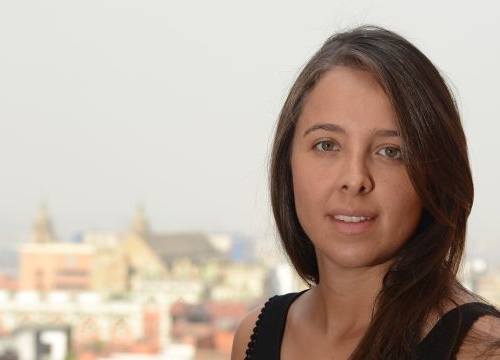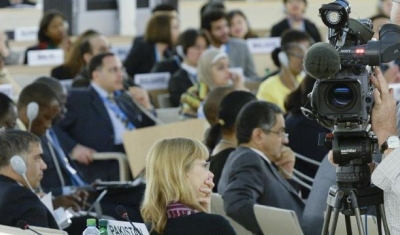MAS in Transitional Justice, Human Rights and the Rule of Law: What Alumni Say
21 January 2020
Tania Bonilla Matiz is a Professional Advisor at the Special Jurisdiction for Peace – a judicial institution created by Colombia’s Peace Agreement to investigate, prosecute and sanction crimes committed in the context of the armed conflict. She is currently supporting the Judicial Panel for Determination of Legal Situations, deciding upon the transitional benefits afforded to civilians, members of the security forces, and other public officials who were involved in the conflict.
Tania graduated from the Master of Advanced Studies in Transitional Justice, Human Rights and the Rule of Law (MTJ) in 2018.
What are the Strengths of the Programme?
The programme offers a variety of subjects that address the main challenges in countries that are facing political transitions. As such, it brings together students from all over the world and with a great diversity of backgrounds who can speak from their own experiences. For that reason, every discussion is an opportunity to escape from common transitional justice notions.
How was Teaching?
The teaching was great mainly because professors are leading experts in their areas. The debates always connected with what is happening in many contexts, so the majority of exercises had a clear purpose and were mirrored in reality.
Your Best Memories of the Programme
My best memory of the programme was the study-trip to Nuremberg: I could share with my classmates the debates about human rights atrocities in a city that set a benchmark in the way to address these and provide justice to victims. It was also an opportunity to visit historical sites that seemed quite remote from the Latin American context.
What Did it Bring to your Career?
I think that the MTJ degree allowed me to get my current position in the Special Jurisdiction for Peace. The Geneva Academy and its academic programmes are recognized internationally as a guarantee of qualified knowledge in the area of human rights and transitional justice.
Do you use what you learned in class in your work?
I use what I learned in class on a daily basis, especially when it comes to proposing creative alternatives – combining the paradigms of restorative and retributive justice – to deal with past human rights abuses in the Colombian context.
Would you Recommend It?
YES! I consider this master as one of the most accurate decisions I’ve ever made!







